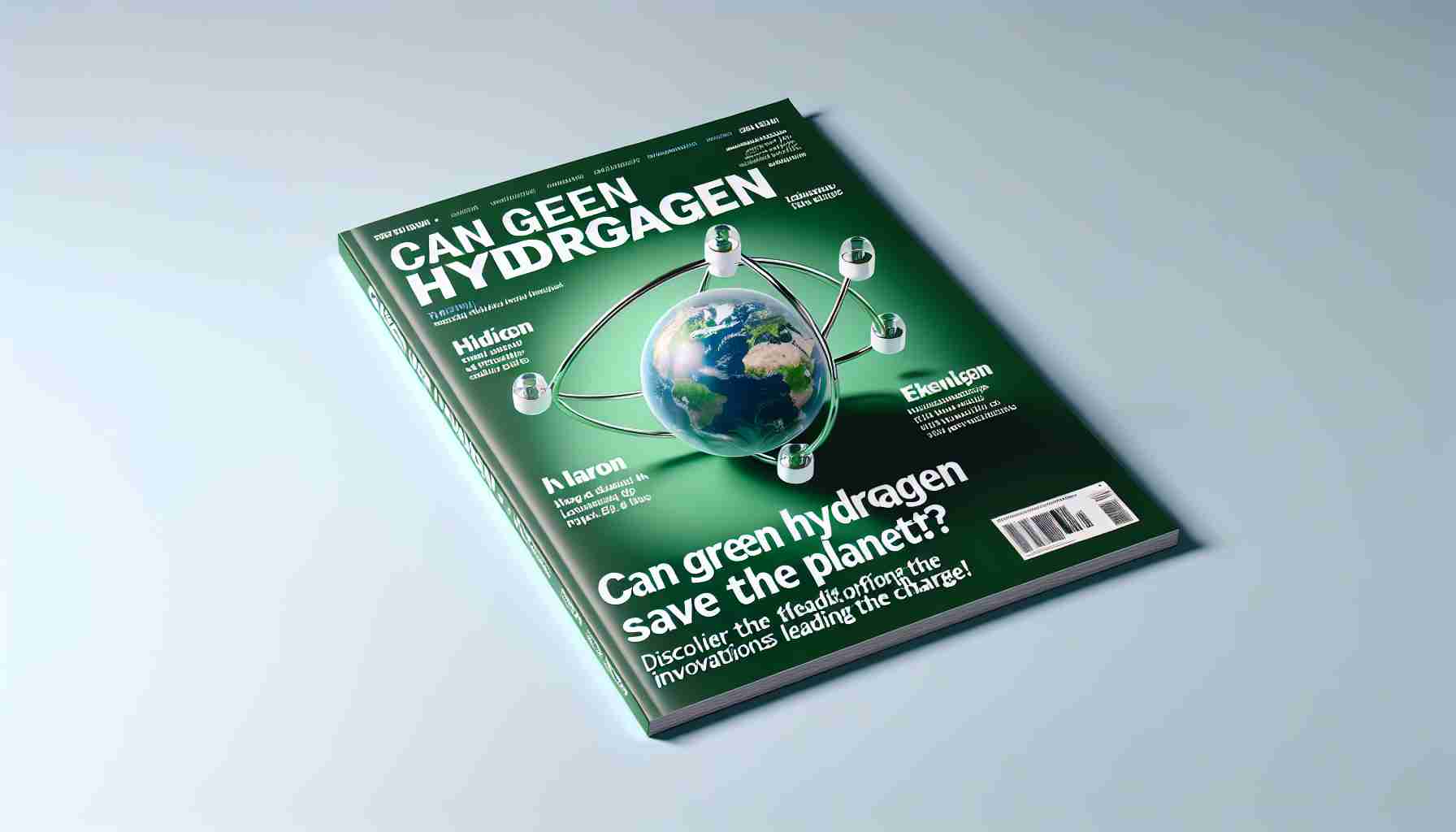Revolutionizing Energy: The Green Hydrogen Revolution
Green hydrogen is emerging as a beacon of hope in the fight against climate change, representing a clean substitute for fossil fuels. Innovators around the world are exploiting cutting-edge technologies to enhance the efficiency and sustainability of hydrogen production.
One notable collaboration between the University of Illinois Chicago and Orochem Technologies utilizes solar power and agricultural waste. By employing biochar, derived from waste materials, they minimize energy requirements and enhance hydrogen production efficiency to an astonishing degree.
Meanwhile, the Korea Institute of Science and Technology is pioneering the use of MXene materials, a type of nanomaterial, to revolutionize electrolysis. This innovation not only increases hydrogen output but also extends catalyst life, thus reducing costs significantly.
Researchers at Flinders University are harnessing the power of solar-driven Sn(II)-perovskite catalysts, which utilize sunlight directly for water splitting, eliminating the reliance on grid electricity and amplifying green hydrogen production potential.
Hero Future Energies is focusing on metal-organic frameworks (MOFs) to significantly boost photocatalytic hydrogen production efficiency, utilizing abundant materials to lower costs while maintaining high performance.
Lastly, Plug Power is integrating renewable energy sources with its specialized electrolysis systems to cultivate a comprehensive green hydrogen ecosystem, showcasing its commitment to sustainability.
These groundbreaking efforts highlight that green hydrogen not only has the potential to transform energy production but also represents a viable pathway to achieving a sustainable future.
Green Hydrogen: The Future of Clean Energy Production
Revolutionizing Energy: The Green Hydrogen Revolution
Green hydrogen is increasingly viewed as a critical element in the global transition towards sustainable energy sources. As a clean alternative to fossil fuels, green hydrogen production has gained momentum, driven by innovative technologies and collaborative efforts across the globe.
FAQs about Green Hydrogen
What is green hydrogen?
Green hydrogen is produced using renewable energy sources like solar or wind power, supplemented by water electrolysis. Unlike conventional hydrogen production methods, which rely on fossil fuels, green hydrogen emits no carbon during its production.
How is green hydrogen produced?
The most common method involves electrolysis, where electricity generated from renewable sources is used to split water into hydrogen and oxygen. Other methods include thermochemical processes utilizing solar energy or biomass gasification.
What are the main applications of green hydrogen?
Green hydrogen can be utilized in various sectors, including transportation (fuel cell vehicles), industrial processes (steel production), and as a means of energy storage for intermittent renewable power sources.
Pros and Cons of Green Hydrogen
Pros:
– Carbon Neutrality: Generates no greenhouse gases during production.
– Energy Storage: Can store excess renewable energy for later use.
– Versatility: Applicable across multiple industries like transportation, manufacturing, and power generation.
Cons:
– High Costs: Current production technologies can be expensive.
– Infrastructure Needs: Requires a significant investment in new infrastructure.
– Energy Efficiency: Although improving, the overall efficiency from solar to hydrogen may still be relatively low compared to direct electricity use.
Innovations in Green Hydrogen Technologies
A variety of new materials and techniques are spearheading advancements in green hydrogen production:
1. Solar-Powered Electrolysis: As highlighted, Flinders University is pioneering solar-driven Sn(II)-perovskite catalysts, directly harnessing sunlight for more efficient water splitting.
2. Nanomaterials: The use of MXene materials by the Korea Institute of Science and Technology enhances the efficiency of electrolysis, pushing the boundaries of catalyst longevity and performance.
3. Agricultural Waste Utilization: The collaboration between the University of Illinois Chicago and Orochem Technologies demonstrates how waste products can streamline hydrogen production processes.
4. Metal-Organic Frameworks (MOFs): Hero Future Energies is exploring MOFs to improve photocatalytic processes, significantly lowering production costs by using readily available materials.
5. Integrated Systems: Plug Power is leading the charge in creating a comprehensive ecosystem for green hydrogen through integrating renewable sources with efficient electrolysis systems.
Market Trends and Future Predictions
The green hydrogen market is projected to grow significantly, with expectations for investments reaching billions in the coming years. This growth will be fueled by heightened awareness of climate change, government policies promoting clean energy, and advances in hydrogen production technologies.
Moreover, trends indicate a push towards developing broader hydrogen infrastructure, which could unlock its potential as a key player in decarbonizing various sectors.
Conclusion
The green hydrogen revolution holds the promise of transforming energy production and consumption, providing a sustainable and scalable solution to tackle climate change. With ongoing innovations and a clear trajectory for market growth, green hydrogen stands to play a pivotal role in our clean energy future.
For more insights on renewable energy solutions, visit Energy.gov.
